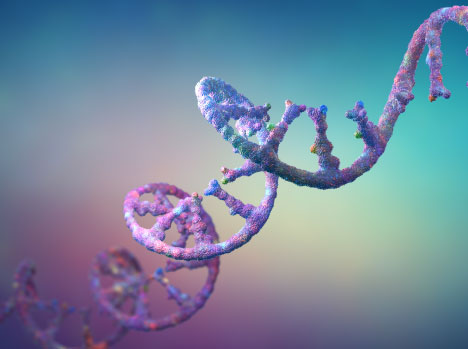
Things are continuing to look up for Bayer’s Parkinson’s disease cell therapy, with the German pharma giant finally offering a deeper dive into phase 1 data that confirms the candidate hit its key safety endpoints.
The stem-cell-derived therapy, bemdaneprocel, has been in development at Bayer’s BlueRock Therapeutics subsidiary. The phase 1 trial kicked off in 2021 with the aim of testing the safety and tolerability of surgically transplanting dopamine-producing cells in the brains of 12 people with Parkinson’s. The goal was to assess the rate of serious adverse events and abnormal tissue overgrowth in the year after transplantation.
The early signs from the study were already promising, with Bayer highlighting in June that bemdaneprocel appeared safe based on a first glance at the data. Now, the company has confirmed the trial hit its primary endpoint of demonstrating safety and tolerability in all 12 patients.
Ahead of presenting detailed phase 1 data at the International Congress on Parkinson’s Disease and Movement Disorders in Copenhagen, Denmark, Bayer’s head of R&D Christian Rommel told Fierce Biotech that the company is now preparing for a phase 2 study of bemdaneprocel, which will be focused on “strengthening the power of the data.”
“Hopefully in two years from now, we [have] the next inflection point or milestone, then we can go all-in for registration data and a lot more emphasis on efficacy,” Rommel said.
Today’s readout showed that patients who received the higher dose of 2.7 million cells saw a 2.16-hour improvement in time spent each day in the “on” state—a term for when Parkinson’s symptoms are well controlled—without troubling involuntary movements known as dyskinesia. Conversely, time spent in the “off” state—where symptoms worsen—reduced by 1.91 hours a day.
Those patients who received the lower dose of 0.9 million cells also saw an improvement, although to a lesser extent, with an increase of 0.72 hours in the “on” state and 0.75 hours less in the “off” state, Bayer explained.
What’s more, PET imaging scans demonstrated evidence of the engrafted cells surviving in both the low- and high-dose cohorts, Bayer noted in its Aug. 28 release. One of the trial’s secondary endpoints was assessing a change in motor function, and, here, the high-dose cohort demonstrated the greater improvement, Bayer added.
No serious adverse events (SAEs) related to bemdaneprocel were reported in the 12-month data. Of the two SAEs that were reported, one was a seizure attributed to the surgical procedure itself and the other was a case of COVID-19.
While bemdaneprocel needs to be administered directly into the brain via surgery, Rommel rejected the idea that the complex procedure would necessarily reduce uptake should the therapy win approval.
“If you consider what surgeons do in neurology, they are very familiar with those settings, so for them it’s not out of the ordinary,” he said. “The question is at which stage of the disease can we [treat], because of the invasive nature.”
Bayer’s vision for bemdaneprocel is to find a drug that can be used in combination with the cell therapy to “further enhance the effect,” which will in turn broaden the range of patients who can access the treatment, Rommel said.
“Our dream is to have this single-time intervention,” he added. “If that’s going to work and it’s safe then it will be used, because at the moment there is no alternative.”
Ever since partnering with Versant Ventures back in 2016 to get BlueRock off the ground, Bayer has held out hope that the biotech’s pluripotent-stem-cell-based platform could be used to address unmet medical needs. The German pharma went on to buy out the company for $240 million, and Rommel said Bayer “continues to see BlueRock as a key building block of our cell and gene therapy strategy.”
Bayer already has plans to turn the platform to retinopathy next year, said Rommel, who “wouldn’t rule out” seeing whether the tech can also be effective in Alzheimer’s disease and dementia.

Check out our mRNA service to expedite your vaccine research
PackGene is a CRO & CDMO technology company that specializes in packaging recombinant adeno-associated virus (rAAV) vectors. Since its establishment in 2014, PackGene has been a leader in the AAV vector CRO service field, providing tens of thousands of custom batches of AAV samples to customers in over 20 countries. PackGene offers a one-stop CMC solution for the early development, pre-clinical development, clinical trials, and drug approval of rAAV vector drugs for cell and gene therapy (CGT) companies that is fast, cost-effective, high-quality, and scalable. Additionally, the company provides compliant services for the GMP-scale production of AAVs and plasmids for pharmaceutical companies, utilizing five technology platforms, including the π-Alpha™ 293 cell AAV high-yield platform and the π-Omega™ plasmid high-yield platform. PackGene’s mission is to make gene therapy affordable and accelerate the launch of innovative gene drugs. The company aims to simplify the challenging aspects of gene therapy development and industrialization processes and provide stable, efficient, and economical rAAV Fast Services to accelerate gene and cell therapy development efforts from discovery phase to commercialization.
Related News
Neurona Secures $102M to Advance Epilepsy Cell Therapy to Phase 3
Neurona Therapeutics has secured $102 million to fund its Phase 3 trial of NRTX-1001, an off-the-shelf cell therapy for epilepsy. The oversubscribed financing round, supported by over 15 investors including Fidelity Management & Research Company, the Column Group,...
European Medicines Agency Requests Pause on Trials for Sarepta’s DMD Gene Therapy
Sarepta and Roche have temporarily halted three European clinical trials of their DMD gene therapy Elevidys, following an EMA request after a 16-year-old patient death in the U.S. The paused trials, including studies in boys and newborns, are on hold pending analysis...
Capsida’s CAP-003 Shows Promise in NHP Study for GBA-Parkinson’s Disease
THOUSAND OAKS, Calif., April 3, 2025 – Capsida Biotherapeutics (“Capsida”) announced new data from a three-month GLP toxicology study in non-human primates (NHPs) with CAP-003, its intravenously (IV) delivered gene therapy for Parkinson’s disease associated with GBA...
EMA Provides Positive Feedback on Variant’s VAR002 Development Pathway
PARIS, April 3, 2025 /PRNewswire/ Variant and the Rare Ocular Diseases Center at the University of Campania Luigi Vanvitelli (UCLV) today announced positive feedback from the EMA on VAR002, an AAV gene therapy for inherited retinal dystrophies linked to CRX...
Related Services

Plasmids GMP Services
Multiple scales & grade of solutions of various kind of plasmids suitable for multiple treatments in a fast and cost effective way.
READ MORE

AAV GMP Services
Ranging from small-scale AAV production, to large-scale AAV cGMP manufacturing for animal studies.
READ MORE

Technology Platforms
PackGene’s proprietary π-Alpha™ 293 AAV High-yield Platform increases AAV production by 3 to 8 times that of traditional platforms.
READ MORE

